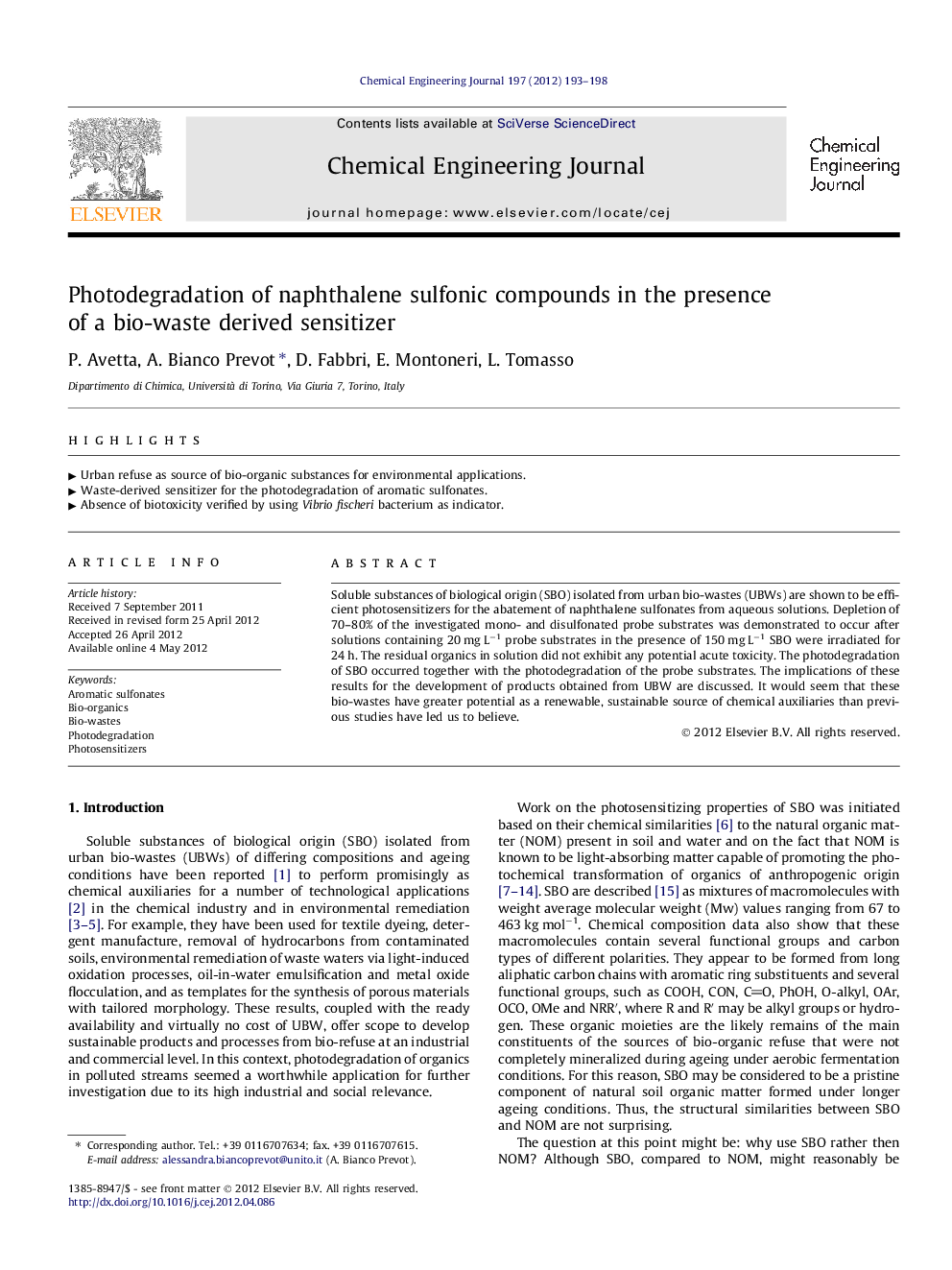| Article ID | Journal | Published Year | Pages | File Type |
|---|---|---|---|---|
| 149694 | Chemical Engineering Journal | 2012 | 6 Pages |
Soluble substances of biological origin (SBO) isolated from urban bio-wastes (UBWs) are shown to be efficient photosensitizers for the abatement of naphthalene sulfonates from aqueous solutions. Depletion of 70–80% of the investigated mono- and disulfonated probe substrates was demonstrated to occur after solutions containing 20 mg L−1 probe substrates in the presence of 150 mg L−1 SBO were irradiated for 24 h. The residual organics in solution did not exhibit any potential acute toxicity. The photodegradation of SBO occurred together with the photodegradation of the probe substrates. The implications of these results for the development of products obtained from UBW are discussed. It would seem that these bio-wastes have greater potential as a renewable, sustainable source of chemical auxiliaries than previous studies have led us to believe.
► Urban refuse as source of bio-organic substances for environmental applications. ► Waste-derived sensitizer for the photodegradation of aromatic sulfonates. ► Absence of biotoxicity verified by using Vibrio fischeri bacterium as indicator.
